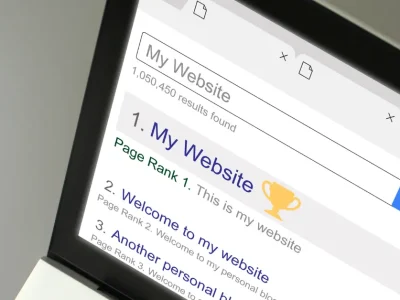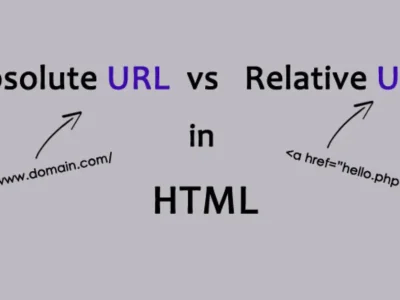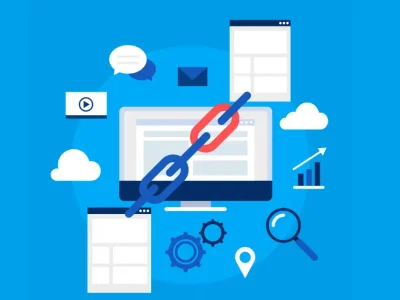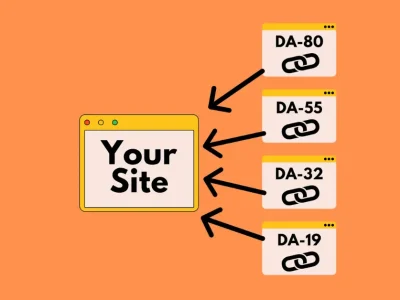In today’s digital age, having a strong online presence is crucial for businesses and individuals alike. One of the most effective ways to maximize your online visibility is through off-page SEO. In this comprehensive guide, we will delve deep into the world of off-page SEO and explore the strategies and techniques that can help you boost your website’s rankings and increase your organic traffic.
Understanding the importance of off-page SEO
Off-page SEO refers to the actions taken outside of your own website to improve its visibility on search engine result pages (SERPs). While on-page SEO focuses on optimizing your website’s content, structure, and HTML code, off-page SEO emphasizes building a strong reputation and authority for your website through external factors.
Off-page SEO is incredibly important because search engines like Google consider external signals as a measure of a website’s credibility and relevance. By implementing effective off-page SEO strategies, you can improve your website’s rankings, increase its organic traffic, and ultimately attract more potential customers or readers.
Off-page SEO vs. on-page SEO: What’s the difference?
Before we dive deeper into off-page SEO, it’s important to understand the difference between off-page SEO and on-page SEO. On-page SEO refers to the optimization techniques applied directly on your website to improve its visibility and rankings on search engines.
On the other hand, off-page SEO focuses on external factors that can influence your website’s rankings. These factors include backlinks, social media signals, online directories, and influencer marketing, among others. While on-page SEO is within your control, off-page SEO involves building relationships, creating valuable content, and earning recognition from other websites and sources.
The role of backlinks in off-page SEO
Backlinks are one of the most crucial elements of off-page SEO. A backlink is a link from one website to another. Search engines like Google consider backlinks as votes of confidence for your website. The more high-quality backlinks you have, the more credible and authoritative your website appears to search engines.
However, not all backlinks are created equal. It’s important to focus on acquiring high-quality backlinks from reputable websites that are relevant to your niche or industry. These backlinks not only improve your website’s rankings but also drive targeted traffic to your site.
How to build high-quality backlinks
Building high-quality backlinks requires a strategic approach and a focus on creating valuable content. Here are some effective strategies to build high-quality backlinks:
- Content creation: Create high-quality, informative, and shareable content that naturally attracts backlinks from other websites.
- Outreach and networking: Reach out to influencers, bloggers, and webmasters in your niche to establish relationships and request backlinks.
- Guest blogging: Contribute guest posts to authoritative websites in your industry, including a backlink to your website in the author bio or within the content.
- Broken link building: Identify broken links on other websites and offer your own content as a replacement, earning a backlink in the process.
- Social bookmarking: Share your content on social bookmarking sites to increase its visibility and attract backlinks from other users.
- Infographics: Create visually appealing infographics that contain valuable information and encourage others to share and link back to your website.
By implementing these strategies consistently and ethically, you can gradually build a strong backlink profile that boosts your website’s rankings and visibility.
Guest blogging for off-page SEO
Guest blogging is a powerful off-page SEO strategy that involves writing and publishing articles on other websites or blogs in your niche. It allows you to tap into an existing audience and gain exposure for your brand or website.
When guest blogging, it’s important to choose reputable websites that have a strong following and are relevant to your niche. Additionally, ensure that your content is valuable, well-researched, and aligns with the website’s audience and guidelines. Include a relevant backlink to your website within the content or in your author bio to drive traffic and improve your website’s rankings.
Social media and off-page SEO
Social media plays a significant role in off-page SEO by increasing your website’s visibility, driving traffic, and improving brand awareness. Here are some tips to leverage social media for off-page SEO:
- Optimize your social media profiles: Ensure that your social media profiles are fully optimized with relevant keywords, a compelling description, and a link to your website.
- Share valuable content: Regularly share high-quality content from your website on social media platforms to attract engagement, shares, and backlinks.
- Engage with your audience: Build relationships with your audience by responding to comments, messages, and mentions. Encourage discussions and share valuable insights to establish yourself as an authority in your niche.
- Collaborate with influencers: Partner with influencers in your industry to amplify your reach and gain exposure to their audience. This can lead to increased brand visibility and potential backlinks.
- Utilize social bookmarking sites: Submit your content to social bookmarking sites like Reddit, Digg, and StumbleUpon to increase its visibility and attract backlinks.
By leveraging the power of social media, you can enhance your off-page SEO efforts and maximize your online visibility.
Online directories and off-page SEO
Online directories are platforms that list and categorize websites based on their industry, location, or niche. These directories can significantly impact your off-page SEO by providing backlinks and increasing your website’s visibility to potential customers or readers.
When submitting your website to online directories, ensure that you choose reputable directories that are relevant to your industry. Optimize your listing with accurate information, including your website’s URL, description, and relevant keywords. This will not only improve your website’s rankings but also drive targeted traffic to your site.
Influencer marketing and off-page SEO
Influencer marketing is a powerful off-page SEO strategy that involves collaborating with influential individuals in your industry to promote your brand or website. By partnering with influencers, you can tap into their existing audience and gain exposure to potential customers or readers.
When implementing influencer marketing for off-page SEO, it’s important to choose influencers who have a strong following and are relevant to your niche. Collaborate with them to create valuable content, such as guest blog posts, social media mentions, or product reviews that drive traffic and improve your website’s visibility. This can result in increased backlinks, brand awareness, and ultimately, higher rankings on search engine result pages.
Monitoring and measuring off-page SEO success
Monitoring and measuring the success of your off-page SEO efforts is crucial to ensure that you’re on the right track. Here are some key metrics to track:
- Backlink profile: Keep an eye on the number and quality of backlinks pointing to your website. Tools like Moz, Ahrefs, and SEMrush can help you analyze your backlink profile.
- Organic traffic: Monitor your website’s organic traffic to understand how effectively your off-page SEO strategies are driving targeted visitors to your site.
- Social media engagement: Track the engagement metrics on your social media platforms, including likes, shares, comments, and mentions. This will help you gauge the effectiveness of your social media efforts.
- Rankings on search engines: Regularly check your website’s rankings on search engines for relevant keywords to assess the impact of your off-page SEO strategies.
By monitoring these metrics and analyzing the data, you can make informed decisions, optimize your off-page SEO strategies, and continuously improve your online visibility.
Common off-page SEO mistakes to avoid
While implementing off-page SEO strategies, it’s important to avoid common mistakes that can hinder your progress. Here are some mistakes to steer clear of:
- Purchasing backlinks: Buying backlinks from shady sources can lead to penalties from search engines and harm your website’s rankings. Focus on earning high-quality backlinks naturally.
- Ignoring social signals: Neglecting the power of social media can limit your off-page SEO success. Leverage social media platforms to amplify your content and engage with your audience.
- Neglecting relevance: Building backlinks from irrelevant or low-quality websites can have a negative impact on your website’s rankings. Prioritize relevance and quality when acquiring backlinks.
- Overlooking local directories: Local directories can greatly benefit businesses targeting a specific geographic area. Don’t overlook the potential of local directories in improving your off-page SEO.
- Failing to diversify: Relying solely on one off-page SEO strategy can limit your results. Diversify your efforts by utilizing various strategies, such as guest blogging, social media, and influencer marketing.
By avoiding these common mistakes, you can ensure that your off-page SEO efforts yield positive results and maximize your online visibility.
Conclusion
Off-page SEO is a crucial component of any successful online marketing strategy. By understanding its importance and implementing effective strategies, you can boost your website’s rankings, increase its organic traffic, and maximize your online visibility. Remember to focus on building high-quality backlinks, leverage social media, utilize online directories, and tap into the power of influencer marketing. Monitor and measure your off-page SEO efforts to continuously optimize your strategies and avoid common mistakes. With a solid off-page SEO foundation, you can take your online presence to new heights and achieve your business or personal goals.










